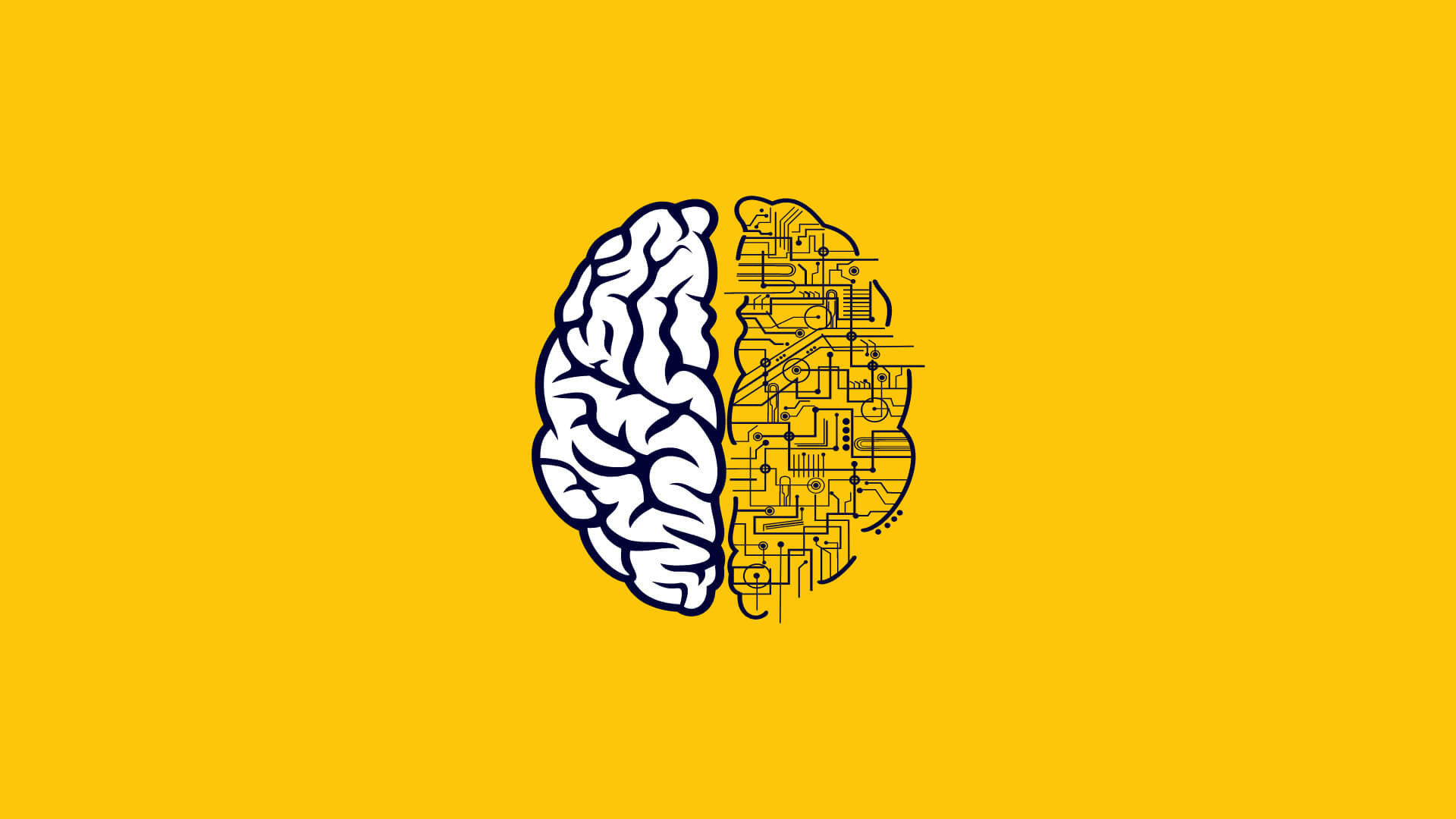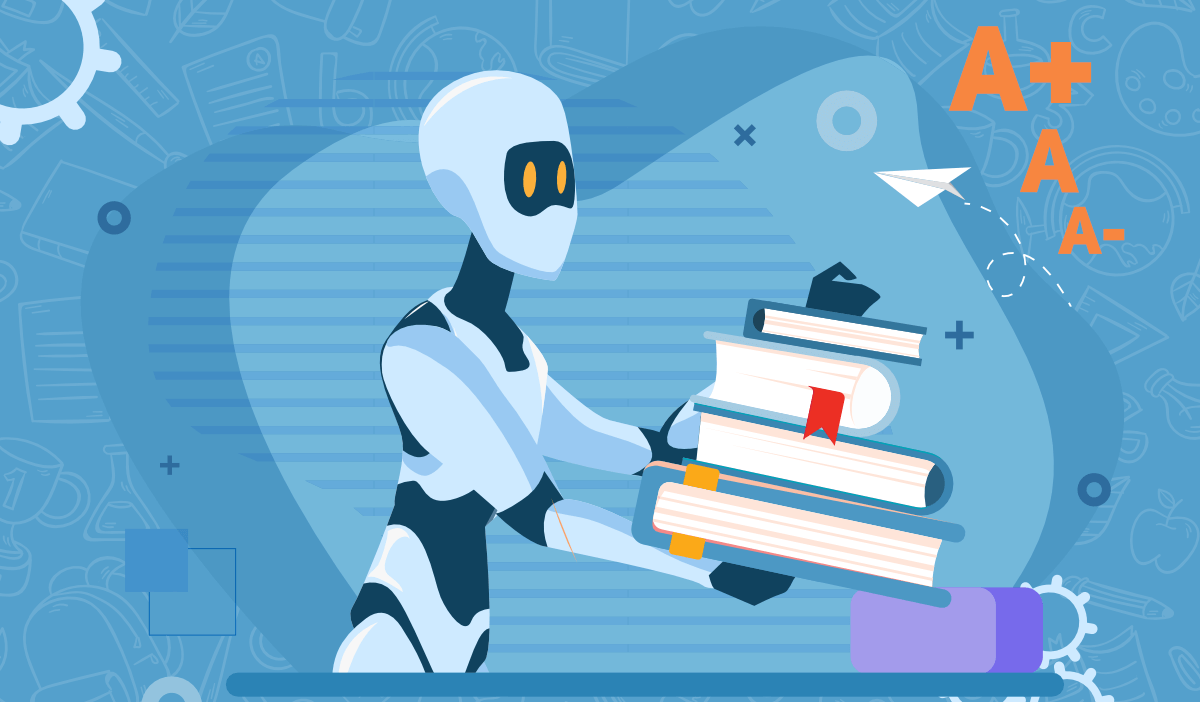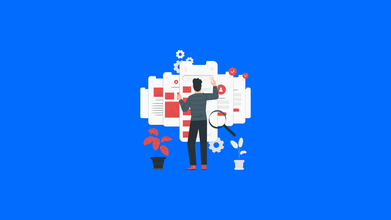Artificial Intelligence As a Service
May 04, 2025 13258 seen
Almost all companies today use at least one type of service offering to focus on their core business and outsource other needs to outside experts and vendors.
Now, the same service approach is being applied to a new area: AIaaS. The number of terms and products is constantly growing, and in this article, we'll have a look at what AIaaS stands for.
-
What is AIaaS?
-
Understanding AI
-
How AI works
-
The growth of AIaaS
-
AIaaS types
-
Benefits & drawbacks
-
AIaaS sellers
What is AIaaS?

AIaaS invites individuals and companies to experiment with AI for a variety of purposes without a large upfront investment.
Everything as a service refers to any software that can be invoked over the network as it is cloud-based. You buy it from a third-party vendor, make a few changes, and start using it almost immediately, even if it hasn't been fully configured for your system.
Understanding AI

Artificial Intelligence (AI) is capable of performing complex tasks, even those that require human intelligence. AI uses various approaches such as deep learning and machine learning to make things more natural. The dramatic improvement in these two capabilities has led to a paradigm shift across all sectors of the technology industry. There are three types of artificial intelligence: narrow AI (NAI), general or strong AI(GAI), and Superintelligence (SAI). The general concepts of artificial intelligence and machine learning are not that foreign to us, as they have been intensively researched by popular media, especially in recent years. So what is the main purpose of artificial intelligence? Many films are showing us a reality in which AI machines and robots are dominant, and in some scenes, robots are in endless competition with humanity. Of course, this has pretty much caused the average person to have a lot of negative impressions about AI and machine learning. However, despite how negatively films can demonstrate the power of machine learning and artificial intelligence, the claimed technologies are truly transforming ordinary human lives into better ones.
The term "AI" can also be used by companies as a marketing tactic to show how innovative they are. This phenomenon is known as artificial AI or fake AI.
It is said that machines that can adapt to new environments and create solutions to new problems have artificial intelligence. In the same way that humans constantly respond to new challenges, computers can now respond in ways that their programmers have not explicitly programmed them to.
However, it is important to note that AI is not created by itself - it is created by humans. We call a certain entity intelligent if it can do what people usually do.
Machine learning is the leading type of AI today. It is the most mature of several areas of artificial intelligence. However, as with AI, there is a lot of hype around machine learning compared to what it is. ML can do a lot today, but it is not just a solution that will solve all your organizational problems.
How Does AI work?

Most AI uses algorithms. Algorithms are defined as a set of rules or a process that a computer usually follows to compute or solve a problem.
There are two types of AI algorithms:
-
Machine learning algorithms (classification and regression)
-
Deep learning algorithms (deep neural nets)
When these algorithms are applied in a specific way, computers can act like the human brain:
-
Determining objects in a picture
-
Responding to roadblocks from a driverless car
-
Chatting with humans with 24/7 availability
Companies want to use all the information they can glean from the data. For organizations, data can help:
-
Better understand your customers and their needs
-
Find points in manufacturing and service delivery that can be automated
The Growth of AIaaS
For companies that can’t build their clouds, test and use their artificial intelligence systems, the AIaaS is the best solution. This is the biggest attraction: the ability to take advantage of data analytics without the need for huge upfront investments in talent and resources.
AIaaS has a lot of benefits:
-
Core business orientation
-
Minimizing investment risk
-
Increasing the benefits you get from your data
-
Increased strategic flexibility
Types of AIaaS

Chatbots and Digital Assistants
This could include chatbots that use natural language processing algorithms to learn from conversations with people and mimic language patterns when providing answers. This allows support staff to focus on more complex tasks.
Cognitive Computing API
Short for Application Programming Interface, API is the way services communicate with each other. APIs allow developers to add a specific technology or service to the application they build without having to write code from scratch. Common API options include:
NLP
Computer speech and computer vision
Translation
Displaying knowledge
Search
Emotion detection
Machine Learning Frameworks
Machine learning and artificial intelligence frameworks are tools that developers can use to build their model which will learn over time from the company's existing data.
Machine learning is often associated with big data, but it can have other uses as well - and these platforms provide a way to embed machine learning tasks without the need for a big data environment.
Fully Managed Machine Learning Services
If machine learning frameworks are the first step to machine learning. This option allows you to add richer machine learning capabilities with templates, out-of-the-box models, and drag-and-drop tools to help developers create a more custom machine learning environment.
Benefits & Drawbacks of AIaaS

Why Should You Use AIaaS?
Developed infrastructure at a fraction of the cost. Successful AI and machine learning require many parallel machines and fast GPUs. Before AIaaS came along, the company could be overly concerned with the initial investment and ongoing maintenance. AIaaS now means companies can leverage the power of machine learning at a significantly lower cost. This means you can continue to work on your core business without training or spending in areas that only partially support the decision-making process.
-
Flexibility. Along with lower costs, AIaaS provides more transparency: pay for what you use.
-
Usability. While many AI variants are open source, they are not always user-friendly. This means your developers spend time installing and developing machine learning technology. Scalability. AIaaS allows you to start small projects to see if it fits your needs. As you gain experience with your data, you can customize your service and scale up or down as your project requirements change.
What are the AIaaS problems?
-
Reduced security. The storage, access, and transmission of data to servers must be secured to ensure that the data is not subject to inappropriate access, sharing, or tampering.
-
Support. Because you work with one or more third parties, you rely on them to provide the necessary information. This is not a problem, but it can lead to time lag or other issues if any issues arise.
-
Reduced transparency. In AIaaS, you buy a service, but do not access it. Some see service offerings, especially in ML, as a black box - you know input and output but don't understand the inner workings, such as what algorithms are used, whether algorithms are updated, and which versions apply to which data. This can lead to confusion or misunderstanding about the stability of your data or results.
-
Data management. Specific industries can limit the ability to store data in the cloud, which in general can prevent your company from taking advantage of certain types of AIaaS.
-
Long-term costs. Cost can skyrocket with all offerings as a service, and AIaaS is no exception. As you delve deeper into AI and machine learning, you may be looking for more complex offerings that can cost more and require you to hire and train employees with more specific expertise. However, as with everything else, the cost can be a smart investment for your company.
AIaaS Sellers

You've probably guessed the main AIaaS providers.
Amazon Web Services (AWS), Microsoft Azure, and Google Cloud Platform (GCP) are all leading companies in the industry that have offered AIaaS offerings to many companies around the world. Each seller offers different bot types to fully manage machine learning options.
However, other well-known tech companies are moving into the Big Three territory, including Salesforce, Oracle, and SAP.
Countless startups are also involved in various parts of AIaaS. As with all industries, it is not uncommon for large companies to buy smaller ones to add sophisticated services to their portfolios.
The future of AIaaS
AIaaS is a rapidly evolving field that has many advantages that bring those in the early stages of development to the market. But its flaws mean there is plenty of room for improvement.
While the development of AIaaS may be challenging, it is likely to be just as important as other as-a-service offerings. This means many other organizations can leverage the power of AI and machine learning.


